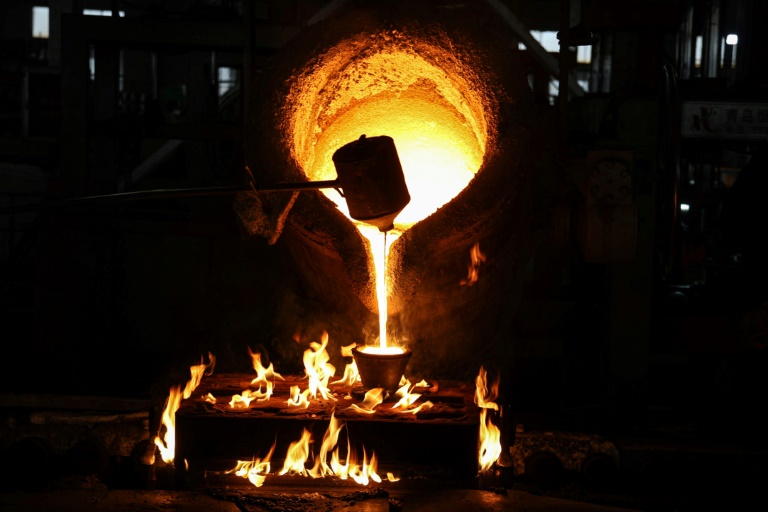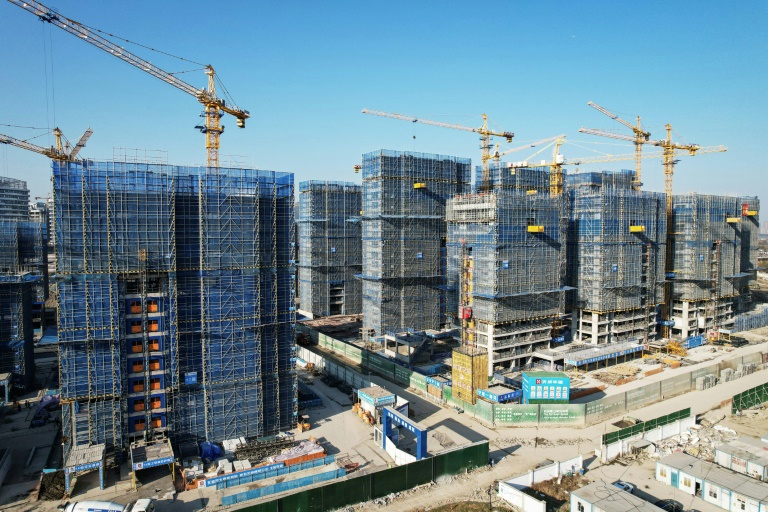Paris (AFP) – French prosecutors said Saturday they were investigating oil giant TotalEnergies for possible involuntary manslaughter in connection with a 2021 jihadist attack in Mozambique that killed hundreds.
The probe follows a legal complaint brought by victims’ families and attack survivors, accusing the French energy company, which was developing a major liquefied gas project in the region, of failing to protect its subcontractors, the prosecutors’ office told AFP.
The survivors and families say TotalEnergies also failed to provide fuel so that helicopters could evacuate civilians after Islamic State-linked militants killed dozens of people in the Mozambican port town of Palma on March 24, 2021.
The entire attack in Cabo Delgado province lasted several days, claiming several hundred lives.
Some of the victims were beheaded and thousands fled their homes.
Contacted by AFP Saturday, a TotalEnergies spokesman reiterated a previous statement saying it “firmly rejects the accusations”.
He said the company’s Mozambique teams had supplied emergency aid and made the evacuation of 2,500 people from the plant possible, including civilians, staff, contractors and sub-contractors.
The French investigation also seeks to establish whether TotalEnergies is guilty of non-assistance to people in danger, prosecutors said.
Seven British and South African complainants — three survivors and four relatives of victims — accuse TotalEnergies of failing to take steps to ensure the safety of subcontractors even before the assault.
The Al-Shabab group — unrelated to the Somali group of the same name — which carried out the attack had been active in Cabo Delgado province since 2017 and drawing ever closer to Palma.
“The danger was known,” said the complainants lawyer Henri Thulliez in 2023 at the time of the lawsuit.
Depending on the outcome of the preliminary probe, the case would either be dropped, or the investigation intensified with a view to bringing possible charges, they said.
– ‘Positive step’ –
Families and survivors welcomed the French decision, with Nicholas Alexander, a South African attack survivor, calling it “a positive step”.
TotalEnergies, he said, bore “a share of responsibility” in the tragedy, he told AFP.
Anabela Lemos, an activist at Friends of the Earth Mozambique — known locally as Justica Ambiental — said the “negative effects” of the French oil major’s Mozambique operations went beyond the 2021 attack because of environmental “destruction” and “deaths” as a result of its presence there.
TotalEnergies’s $20-billion project to develop a large gas field on the Afungi peninsula was halted following the 2021 attack, but chairman Patrick Pouyanne has since said he hoped to revive it.
In November 2023, a group of 124 NGOs posted an open letter to dozens of financial institutions, including European, Japanese and South African banks, urging them to withdraw from the project.
The NGOs — which included the Human Rights League, Oil Change International and Greenpeace France — told the 28 financial institutions that they would otherwise bear “direct and significant responsibility” for its impact.
“The humanitarian and security risks, as well as the complexity of operations in a conflict zone” were underestimated, the NGOs said in the letter, calling any continuation “reckless”.
The project threatened local ecosystems and the global climate, while failing to benefit local communities, they said.
Mozambique has set high hopes on vast natural gas deposits — the largest found south of the Sahara — that were discovered in the Muslim-majority northern province in 2010.
The former Portuguese colony of 30 million people in southeast Africa is one of the world’s poorest countries despite having large natural resources, especially gas.
It has faced insurgencies from Islamist groups for much of the past decade.
© 2024 AFP





















